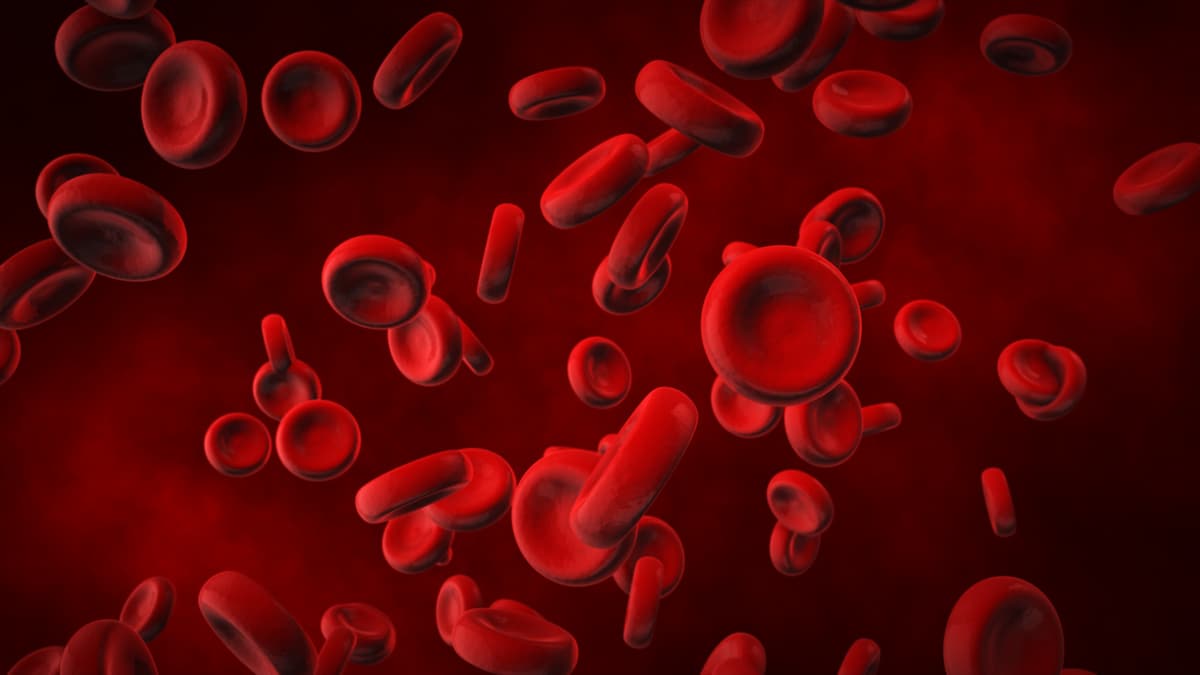Ropeginterferon Is NCCN-Recommended Preferred Therapy in Polycythemia Vera
Ropeginterferon alfa-2b-njft has been moved to preferred status in the National Comprehensive Cancer Network guidelines for polycythemia vera based on data supporting the agent’s superior efficacy and safety in high- and low-risk populations.
The National Comprehensive Cancer Network (NCCN) guidelines have been updated to include ropeginterferon alfa-2b-njft (Besremi) as the preferred treatment option regardless of prior treatment for adult patients with high- and low-risk polycythemia vera.1,2
According to the agent’s prescribing information, ropeginterferon yields robust and long-lasting rates of complete hematologic response over the course of 7.5 years across an array of patients with a tolerable safety profile.

“Importantly, the NCCN Guidelines update includes moving [ropeginterferon] to preferred status, reinforcing to treating physicians and patients that with its broad utility, [ropeginterferon] is recommended for proactively treating [polycythemia vera],” John Mascarenhas, MD, professor of medicine, hematology, and medical oncology at the Icahn School of Medicine at Mount Sinai in New York, said in the press release.
Ropeginterferon is a monopegylated interferon capable of long-lasting activity that is administered once every 2 weeks or 4 weeks in those with hematologic stability lasting 1 year.2 This creates the opportunity for flexible dosing that can be tailored based on patient needs.
The agent is counterindicated in those with the presence or a history of severe psychiatric disorders such as severe depression, suicidal ideation, or suicide attempt; hypersensitivity to interferons; moderate or severe hepatic impairment; history or presence of active serious or untreated autoimmune disease; or transplant recipients who are immunosuppressed.3
The current initial treatment recommendations from the NCCN include managing cardiovascular risk factors, aspirin, phlebotomy to maintain a hematocrit of less than 45%, and ropeginterferon in those with category 2B disease. In particular, ropeginterferon was recommended as a first-line treatment for low-risk patients.
In addition to being recommended as an initial treatment option in those with category 2A disease, it can also be considered for use following inadequate response or loss of response following previous cytoreductive therapy.
Ropeginterferon’s use is supported by findings from the final phase 1/2 PEGINVERA study (NCT01193699).4 In a population of 51 patients, investigators reported a complete hematologic response rate of 64.3% and a partial response rate of 33.3%. Treatment for a median of 34 weeks was needed to garner a complete hematologic response.
A total of 94.1% of patients reported having at least 1 adverse effects (AEs) following treatment with ropeginterferon, although most were low grade. Moreover, 66.7% of patients had moderate AEs and 19.6% were severe. The most common AEs were arthralgia, influenza-like illness, and fatigue. Serious treatment-emergent AEs that were related to treatment included depression (n = 2), anti-thyroid antibodies (n = 2), acute stress disorder (n = 1), increased antinuclear antibodies (n = 1), arthralgia (n = 1), atrial fibrillation (n = 1), fatigue (n = 1), influenza-like illness (n = 1), pyrexia (n = 1), and increased transaminases (n =1).
According to the agent’s prescribing information, ropeginterferon yields robust and long-lasting rates of complete hematologic response over the course of 7.5 years across an array of patients with a tolerable safety profile.5
“This recent update to treatment guidelines by [the] NCCN represents the community’s recognition of the value of [ropeginterferon] as a therapeutic option for all adults with [polycythemia vera], regardless of their treatment history," Raymond Urbanski, MD, PhD, US head of clinical development and medical affairs at PharmaEssentia, said in the press release. “Given its deep, durable control over the disease beyond the symptoms, we’re continuing to study [ropeginterferon] in [polycythemia vera], as well as other myeloproliferative neoplasms and hematologic malignancies.”
References
- NCCN Clinical Practice Guidelines in Oncology updated to recommend BESREMi® (ropeginterferon alfa-2b-njft) as a preferred intervention for polycythemia vera. News release. PharmaEssentials. May 23, 2023. Accessed May 25, 2023. https://bit.ly/3MAtr99
- NCCN. Clinical Practice Guidelines in Oncology. Myeloproliferative Neoplasms, version 1.2023. Accessed May 25, 2023. https://bit.ly/43rPjKJ
- Ropeginterferon alfa-2b-njft (BESREMi) is a recommended option by the NCCN Clinical Practice Guidelines in Oncology (NCCN Guidelines®) for both low- and high-risk PV in multiple treatment settings. PharmaEssentia. June 2022. Accessed May 25, 2023. https://bit.ly/3IGqV0a
- Gisslinger H, Buxhofer-Ausch V, Thaler J, et al. Long-term efficacy and safety of ropeginterferon alfa-2b in patients with polycythemia vera — final phase I/II peginvera study results. Blood. 2018;132(suppl 1):3030. doi:10.1182/blood-2018-99-118584
- Ropeginterferon alfa-2b-njft. Prescribing information. PharmaEssentia Corporation. 2021 Accessed May 25, 2023. https://bit.ly/3BUHdOX